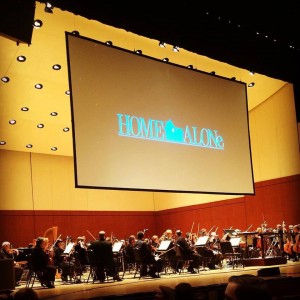 This is not a moment, it’s the movement.
This is not a moment, it’s the movement.
I don’t want to be this way anymore.
I think this all the time; well, too much of the time, anyway. Every time I want to scream or punch a pillow or just run away more than I want to be where I am. Every time I feel something so deeply it’s uncomfortable. Every time I can’t shake a sad story I heard. Every time I feel the shortness of my temper, the fraying of my nerves, the lapping edges of my anxiety.
Then the temper or emotion or anxiety recedes and I realize that what I’m saying in those moments is that I don’t want to be me.
The only time I’d ever heard the phrase before recently was as profanity, or an expression of godless frustration at the least: Christ have mercy. Which made it jarring when I heard it for the first time as an expression of faith, of lament. I learned that it’s a part of the ancient liturgy, with which I’m still (and forever) becoming familiar–and it became beautiful. From profane to beautiful–not a bad journey.
So I’ve thought of it as I take my seat on the floor of the bathroom for another attempt at potty-training. I utter it silently, or not silently, as I check him and race him to the toilet and wait there beside him, tired of this stool, of this view; my urge for this to just be easier–even as he starts trying to talk in sentences. I always focus on the thing that’s not there, though.
I don’t want to be this way anymore.
The Husband and I head out for a date night that I’m giddy for like a kid: the symphony is performing the score to Home Alone while the movie plays on a screen. We go to dinner before, the last half of our drive brought to a crawling mess by traffic, and by the time we step into the restaurant we’re already late. We explain to the waiter that we’ll be quick, but apparently the kitchen doesn’t accept notes, and at the time we’re supposed to leave, we still haven’t gotten our food.
“I’m so anxious,” I tell TH through gritted teeth, as I try not to remind myself that he’s the one who picked this restaurant, as I try (and fail) not to cast blame inwardly. My back tightens and I want to punch the table.
I don’t want to be this way anymore.
We end up getting the food in boxes and eating it in the parking deck–hoovering this fine meal in under three minutes–and now that we’re here, now that we’re not going to miss the opening notes (or a trip to the bar), I relax and think of what I had read to the boys earlier in the day:
From there to here, from here to there, funny things are everywhere.
I wish I could relax before everything’s okay. I wish I could laugh from the floor every trip to the can. I’m not there yet. But I think of the quote, and I laugh. I tell TH, “You know I’m going to have to write about this.”
I don’t want to be some ways anymore. But I’m starting to think it’s not all a wash.
I think of all the things I never wanted: to be this way. To learn like this. To draw this card from the pile. And I realize that the truth underneath it all, the thing I never knew I was saying, is that I never wanted to love this much. Not when this kind of love–this knowing the person across the table so well, this having to teach a child how to fend for himself–is so damn inconvenient. And not the kind of inconvenient that Carrie Bradshaw talked about–oh no honey, we’re way past that. You don’t get to wear heels to this party, and avoid the designer labels too because your clothes will just be a napkin for human waste. I’m talking about the kind that demands more of you than you’d ever thought you could give–willingness aside–because you never even knew it was within you to give. The kind that exhausts, that incites rage and empathy and laughter and tears and all of the feelings–often in the same moment. The kind that requires forgiveness–for you and them. The kind that rebuilds you. The kind that uncovers who you were meant to be–so painfully.
Old Man Marley picks Kevin off the hanger and places him on the ground. “Come,” he tells him. “I’m taking you home.”
The next day at church I wait in line for the bread and wine and am suddenly so overcome by my undeservedness that I feel tears spring to my eyes. Well this is embarrassing. Except it’s not. I receive the elements in my empty hands. It’s my week to go get the boys, and I walk across the hallway toward them with tears now overflowing. My not deserving this is what makes it all a gift. And in that moment–that moment of gearing up for resumed parenthood, for taking care of someone else, that moment that occurs unconsciously, of my anxiety rising, of fear kicking in–what if I don’t get this parenting thing right?–I hear the voice in my heart:
You don’t save you. I save you.
And I struggle to breathe, because I know what else this means.
You don’t save them either.
This is not bootstraps faith, it’s not new year’s resolutions, it’s not a checklist of self-improvement. This is the empty-handed, on-the-floor, not-wanting-to-be-this-way intersection of me and grace. It’s the grace of anxiety and fart jokes and shit stains and buttoned-up orchestras that break into playful song for a room full of adults watching a “kid” movie. The grace that keeps my heart alive and that never lets me venture too far into bitterness, into cynicism, before bringing me back. That redeems my shortcomings and anoints my talents. The grace that loves me while I’m this way but lets me be so many others. The grace that always gives, that takes all of me, and says, “Come. I’m taking you home.”
Grace has mercy. Christ has mercy.
